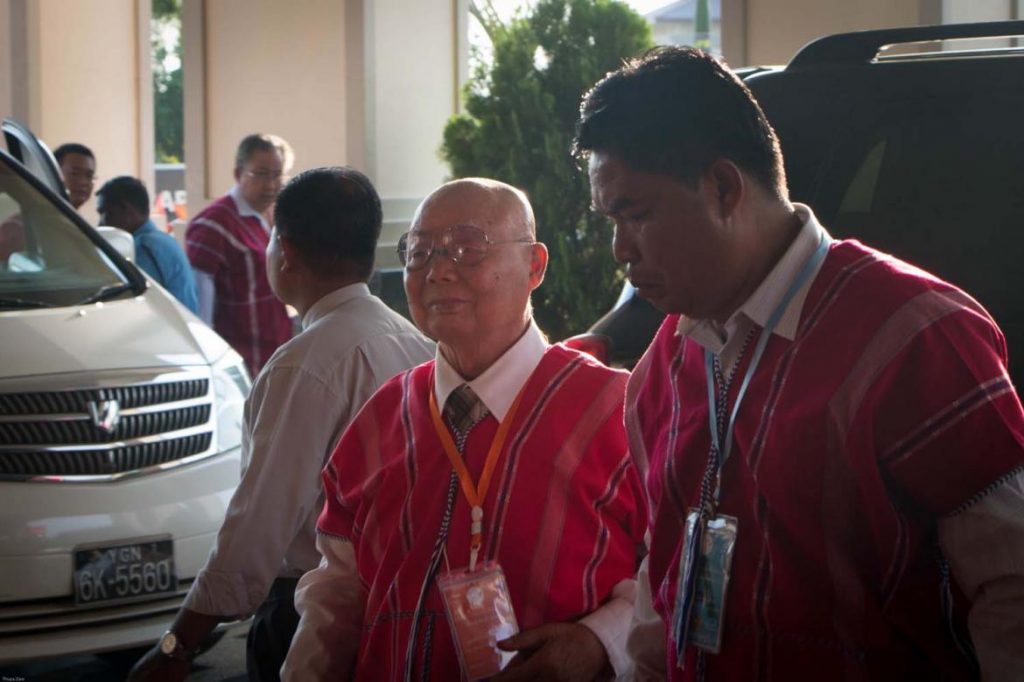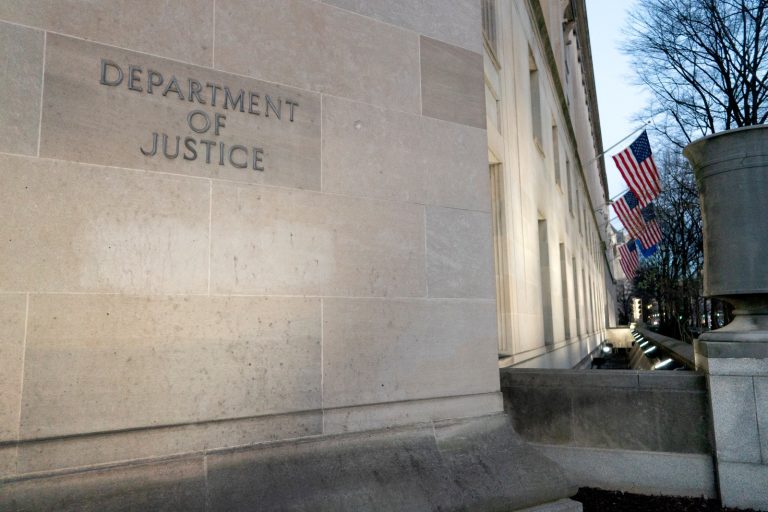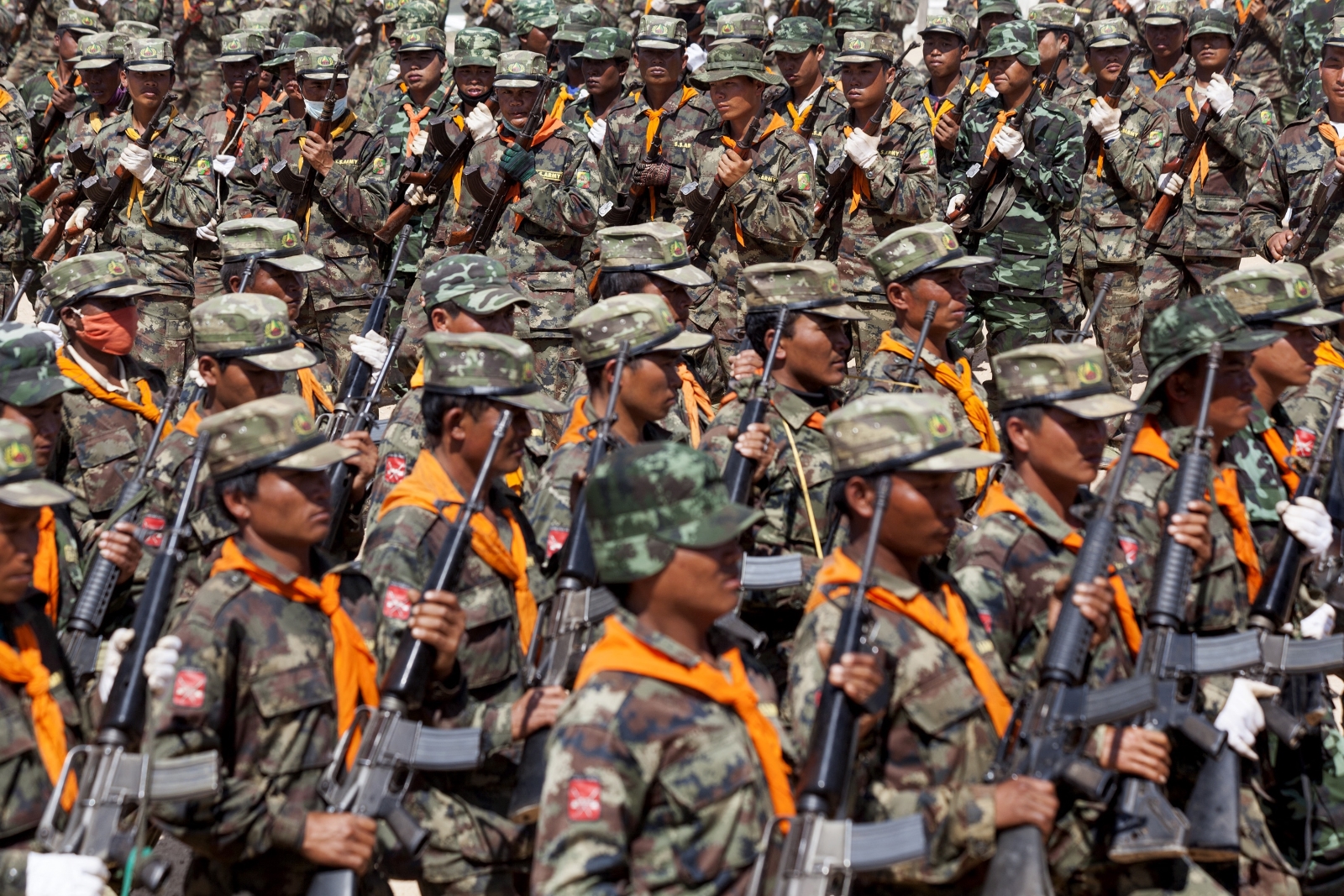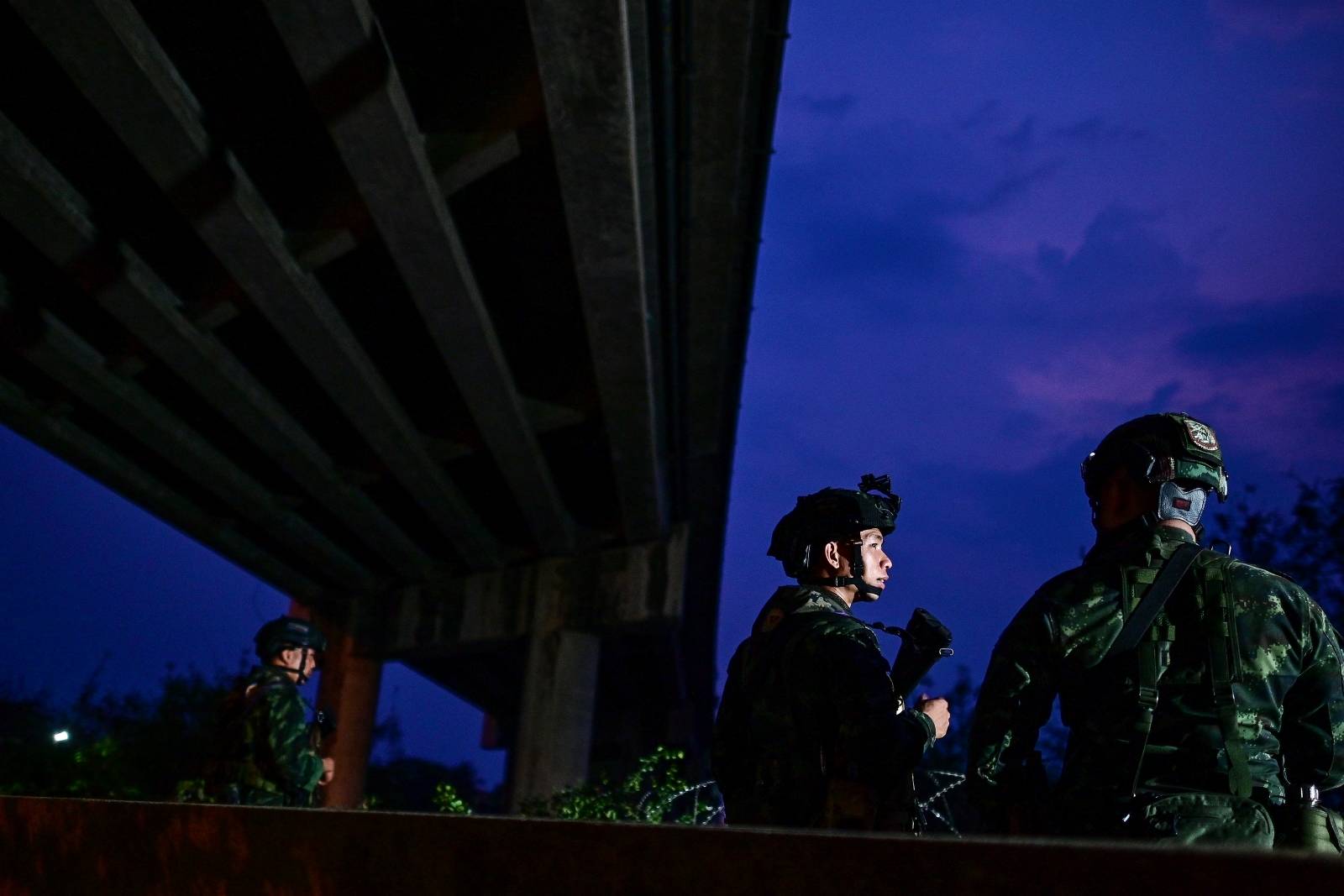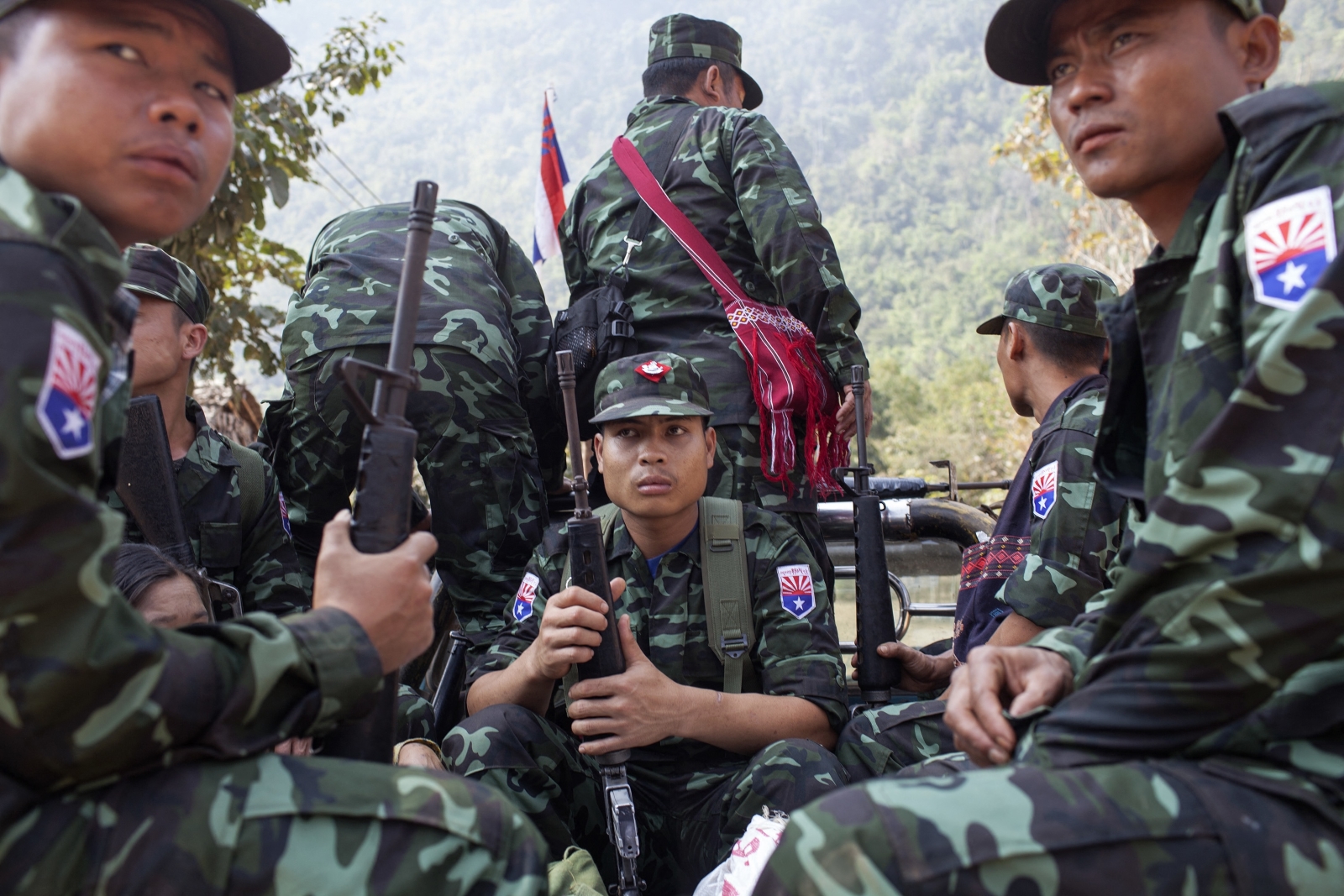Recent high-level talks in Nay Pyi Taw were an attempt to achieve a breakthrough in the peace process but they seem to have made the situation worse.
By SITHU AUNG MYINT | FRONTIER
ON OCTOBER 15 and 16, leaders of the government, Tatmadaw and ethnic armed groups that have signed the Nationwide Ceasefire Agreement met in Nay Pyi Taw for informal talks aimed at overcoming differences holding up the peace process. The summit, an initiative of the Karen National Union, failed to overcome differences over key issues. If anything, the situation seems to have worsened since the summit took place.
When the KNU suggested an informal summit in September in an attempt to revive the peace process, State Counsellor Daw Aung San Suu Kyi and Tatmadaw Commander-in-Chief Senior General Min Aung Hlaing agreed to attend and proposed that it be held in mid-October. Some KNU leaders disagreed with the proposed date because it would not allow them enough time to meet ahead of the summit to discuss strategy.
Nevertheless, the KNU eventually agreed to attend and was represented at the summit by its chairman, General Mutu Say Poe. The Restoration Council of Shan State, and its armed wing, the Shan State Army-South, also had misgivings about the timing of the informal talks. Its leader General Yawd Serk had wanted a meeting of the RCSS and talks with other ethnic armed groups ahead of the summit, but they were not to be. Of the 10 groups that have so far signed the NCA, the KNU and the RCSS are the biggest.
The summit opened on October 15 – the anniversary of the signing of the NCA by the KNU, RCSS and six other groups in 2015. Min Aung Hlaing made an opening speech but did not attend subsequent sessions, so it is difficult to call the high-level talks a summit.
Support more independent journalism like this. Sign up to be a Frontier member.
In his speech, Min Aung Hlaing issued a warning to the RCSS and reiterated the Tatmadaw’s uncompromising stand on the issues of non-secession and a single national army. The absence of the Tatmadaw chief from the rest of the talks meant that they were unable to achieve a breakthrough. Initially planned for three days, the so-called summit ended after two.
In an interview with the Myanmar Times after the talks, Yawd Serk spoke at length about the non-secession issue, noting that it had not been included in negotiations that led to the signing of the NCA. The issue was sensitive because it was linked to politics and history, he told the newspaper. Yawd Serk said that Shan State was given the right to secede under the 1947 Constitution, which was based on the Panglong agreement. “If we want to discuss non-secession, we need to go back to the agreements made in 1947. Then the political issues will become more complicated,” he said.
Yawd Serk said that if the Tatmadaw continued to insist on raising the issue of non-secession there would need to be public discussion and a referendum in Shan State. “The RCSS alone cannot decide on the matter of non-secession,” he said.
Min Aung Hlaing’s opening speech also caused considerable disquiet in the KNU. Soon after the talks, the KNU said it supported the idea of a national army but detailed discussion would first be needed about how it would be constituted. The commander-in-chief and deputy commander-in-chief of the KNU’s armed wing, the Karen National Liberation Army, described the Tatmadaw as an armed force created by dictators. Under present circumstances, the KNLA could not unite with the Tatmadaw, they said.
When Myanmar is at peace it will need a genuine Union Tatmadaw comprising representatives of all the main ethnic groups but until then the Karen revolution was not finished and the KNLA would continue to exist, said its deputy commander-in-chief, Lieutenant-General Saw Baw Kyaw Hae.
In a powerful indication of its dissatisfaction with the high-level talks, the KNU wrote to Aung San Suu Kyi, in her capacity as chair of the National Reconciliation and Peace Center, on October 27 to say it was suspending participation in the peace process. The leaked letter said the KNU was temporarily withdrawing from the process because it wanted to confer with members. It is the first time an NCA signatory has withdrawn from the process.
Being the most powerful of the ethnic armed groups to have signed the NCA, the KNU and RCSS’s dissatisfaction with the outcome of the Nay Pyi Taw summit does not augur well for the future of the peace process.
Opinions expressed by key players since the summit may have even breached a clause in the NCA that requires signatories to “avoid hostile propaganda, defamatory, untruthful or derogatory statements, both within and outside the country”.
Taking all into consideration, the summit was a failure and a setback for the peace process.


